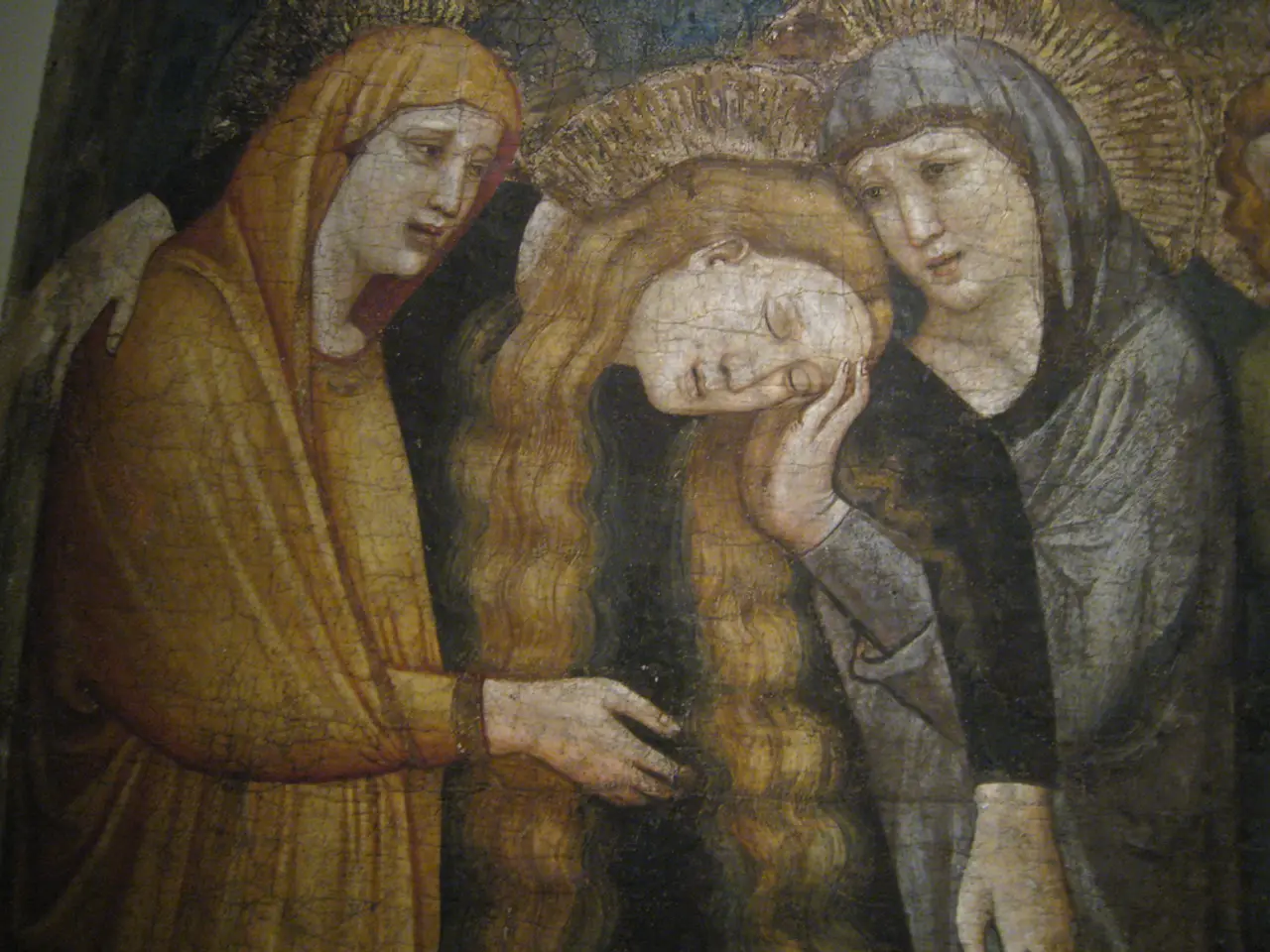AI utility in cinema is likened to the unregulated frontier of the Wild West, according to James Cameron.
In the world of filmmaking, James Cameron continues to push boundaries, exploring the potential of generative AI as a tool to revolutionise blockbuster filmmaking.
At the heart of Cameron's vision is a belief that AI can significantly reduce costs and assist in CGI, which he sees as the "next wave" of storytelling. This belief is reflected in his active involvement in the field, having joined the board of Stability AI, a leading generative AI company.
However, Cameron is not blind to the risks and the impact of AI on the creative process and artists. He doubts that AI can ever genuinely replace human screenwriters or create stories that emotionally move audiences. To underscore his stance on preserving human artistry in filmmaking, Avatar 3 opens with a bold title card stating "no generative AI was used in the making of this movie."
Cameron's concerns extend beyond the film industry. He warns about the broader dangers of AI, particularly the risk of autonomous weapon systems, likening it to the real-life possibility of a "Terminator"-style apocalypse.
The exhibition titled 'The Art of James Cameron' currently running at Cannes' Palais des Festivals, showcases 300 original pieces from Cameron's career. Among the exhibits are drawings, pastels, paintings, props, costumes, photographs, and 3D devices from some of his most iconic films. The exhibition, organised by the city of Cannes and previously launched at the Cinémathèque française Paris, will next head to Istanbul.
Cameron is currently wrapping post-production on Avatar: Fire and Ash in New Zealand. He plans to adapt Joe Abercrombie's fantasy novel The Devils and the Charles Pellegrino novel Ghosts of Hiroshima for film, with the latter planned to be in 3D. Interestingly, Cameron expresses a deep personal connection to the subject matter of Ghosts of Hiroshima, stating that it fulfils his long-held angst about the world.
Despite his concerns, Cameron maintains a positive attitude towards learning and mastering new technology. He believes that generative AI can play an important role in greenlighting more fantasy, phantasmagorical, science fiction, and visually opulent films. However, he also fears that AI could synthesize actors who are dead, and expresses concern about the potential of generative AI to replace artists and actors.
Cameron plans to make Avatar 4 and 5 as well, with all scripts already written. He suggests that generative AI could facilitate production, reduce costs, and cut production time, making it possible for him to make more movies in less time due to the high costs and decreasing importance of cinema.
As the landscape of cinema evolves, Cameron believes that artists will need to master generative AI as a tool but remain vigilant to retain human creativity and control. Balancing innovation with caution about AI’s broader implications for society and the arts, Cameron stands at the forefront of this evolving industry.
- James Cameron advocates for the use of artificial intelligence in filmmaking, particularly in reducing costs and aiding CGI, seeing it as a means to revolutionize blockbuster filmmaking.
- In contrast, Cameron doubts that AI can replace human screenwriters or create emotionally resonant stories, emphasizing the importance of preserving human artistry in filmmaking.




